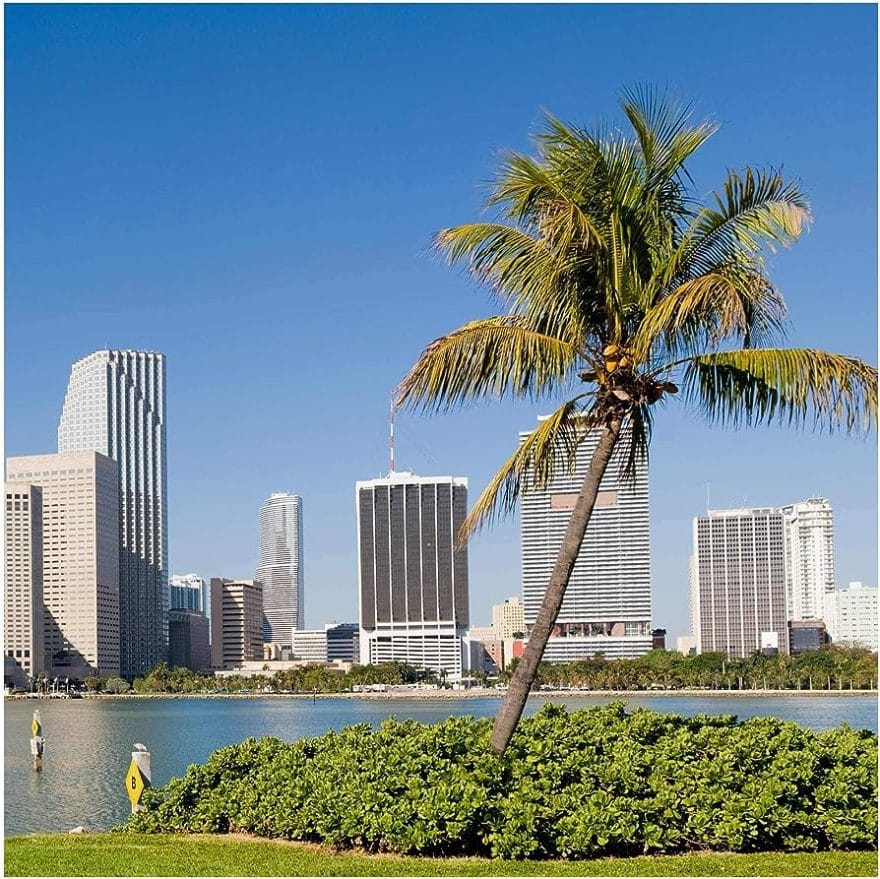Everyone remembers G-Funk, New Orleans Bounce, Memphis Horrorcore, and more, but when it comes to Miami Bass, there aren’t many classics or stars to speak of. For a city so diverse and populous, it is odd that their defining sound hasn’t survived to the internet age (you’ll be hard pressed to find any lists of the best Miami Bass albums).
Even more surprising is the realization of how many massive hits came out of the Miami Bass scene and would become entrenched not just in hip-hop, but the pop culture canon as a whole. These apparent one-hit wonders deserve more praise for their contributions to the city’s culture. Forged in roller rinks and Liberty City brownfields, the upbeat, party-oriented sound of bass would regionally dominate in the 90s, but endure with only minimal recognition in the 2000s through the all-star Slip-N-Slide Records and Florida Jook scene.
All this being said, Miami Bass was clearly a product of its time, but still left its fingerprints in hip-hop and the deep south for decades to come. Here, we will shine light on some of the scene’s underrated champions.
Maggotron
Maggotron is widely considered the progenitor of the Miami Bass sound; dating back to the mid 80s, his work was an early example of the genre’s signature fast-pace percussion and low end. While Maggotron was not purely hip-hop, the influence is clear and would be adopted by MCs in the coming years.
Luke and 2 Live Crew
If any one act’s legacy has survived time and remained recognized among hip-hop fans, its the 2 Live Crew. Originally from Riverside, California, the group (originally DJ Mr. Mixx, Amazing Vee and Fresh Kid Ice, who is notably one of the earliest notable Asian American rappers) would relocate to Miami at the behest of promoter Luke Campbell.
2 Live Crew is perhaps most famous for their landmark Supreme Court case in which they faced charges of obscenity in their art. Ultimately, they would win the case and set a new precedent against censorship in hip-hop, all while building a reputation for such outwardly raunchy, sexual party music – all aspects that fit the sound and attitude of Miami perfectly. Hits such as “Me So Horny“, “We Want Some Pussy“, and the classic album As Nasty As They Wanna Be remain beloved.
Uncle Luke himself is considered a pioneer of southern hip-hop, helping to forge his own label and scene from the ground up, as well as going on to a fruitful solo career throughout the 90s. His Scandalous: The All Star Compilation would even feature the likes of Biggie, Snoop, and many other highly respected rappers. While a controversial figure on the business side, Luke’s impact on hip-hop and the city of Miami cannot be understated.
DJ Magic Mike & The Royal Posse
DJ Magic Mike, an Orlando native, should be remembered as one of Miami Bass’ finest, most technical producers. His early work leans further from hip-hop (incorporating more Latin and electronic influences) and you can easily imagine it being played as dance music at any club or rink between the song structure, bounce, and expert scratches. Later on, he would collaborate for full lengths with rap group The Royal Posse, and most notably, MC Madness, who would bring a level of complexity to his lyrics that was far above most in the scene at the time.
DJ Uncle Al
Similarly to DJ Magic Mike, the late great Uncle Al’s dense, inventive grooves raised the bar for Miami Bass production. While beef between various Miami sets embroiled the scene (Al and Mike themselves opposed), Al and his music championed good times, and he was dedicated to fostering a safer community through charity and service before his own murder.
Poison Clan
Proteges of Uncle Luke, Poison Clan are among the most visionary artists out of Miami. Originally billed as “The Baby 2 Live Crew”, the group stood out for doing something more serious with the Bass sound – that is, rap about something other than shaking ass. Rather, they, like many other classic artists, covered the seedy realities and hardships of life as a black American. This would still often entail misogynistic themes and manifest in the hit “Shake Watcha Mama Gave Ya” from their 1992 classic, Poisonous Mentality.
Front man JT Money would see some success in the early 2000s as a solo act, adopting a sound similar to Cash Money’s Juvenile. If any artist out of Miami deserves more credit and to be place among the UGKs, Three 6 Mafias, and Outkasts, it’s Poison Clan.
Quad City DJ’s
Technically from upstate in Jacksonville, Quad City DJs are the forgotten architects of some of the 90s’ absolute biggest hits. Comprised of Jay Ski, C.C. Lemonhead, and singer JeLana LaFleur, they would produce multi-platinum classics such as 95 South’s “Whoot, There it Is“, 69 Boyz’ “Tootsee Roll“, and their own “C’Mon N Ride It (The Train)” (a track notable for its intent to break Miami Bass mainstream by featuring a female singer front and center). Quad City DJs would even be recruited to record the iconic theme song to Space Jam.
The fact that so many recognizable pop classics can be traced back not only to a forgotten scene in Miami Bass, but also to a single crew is a sad testament to the genre’s immense influence.

